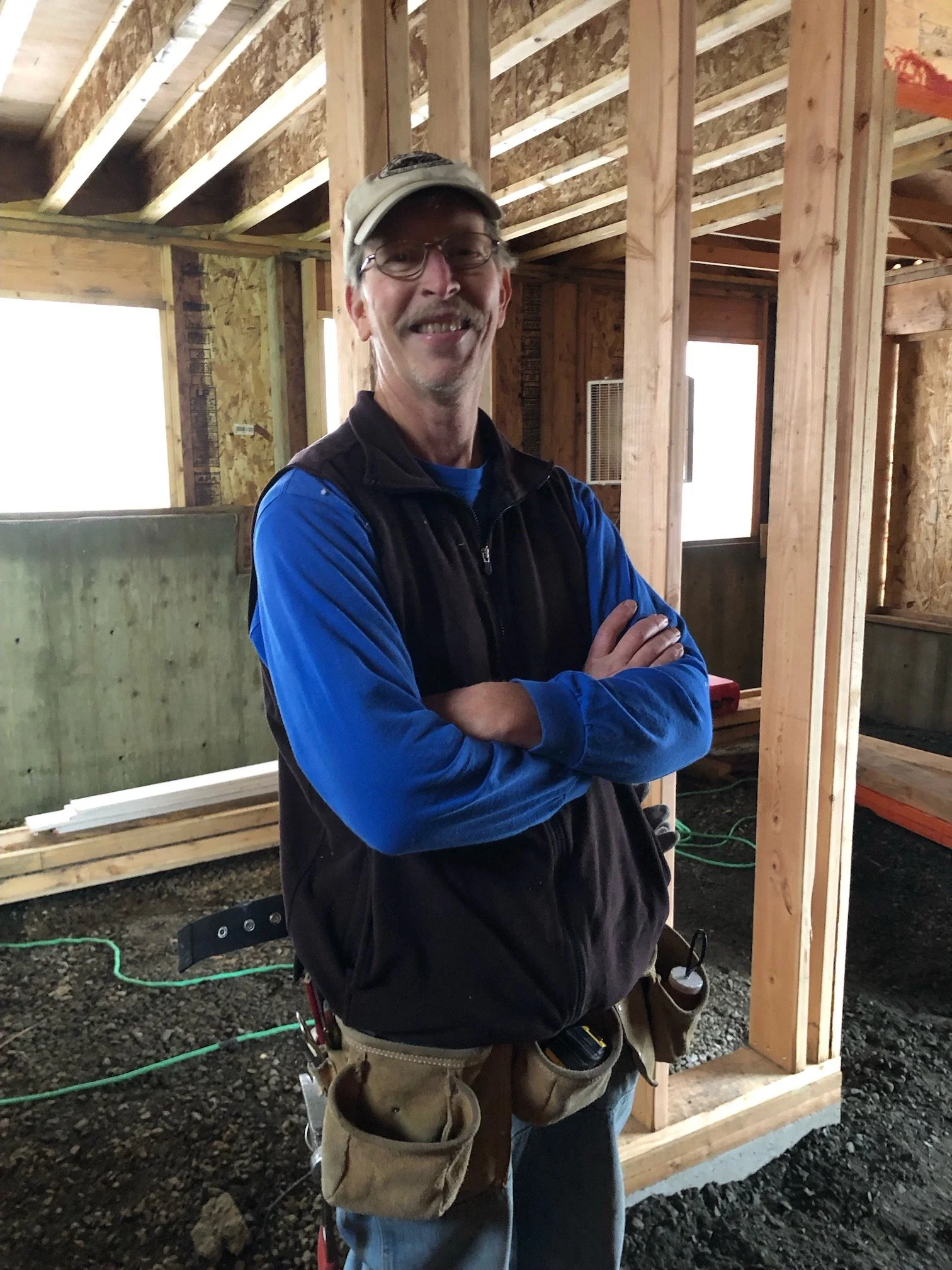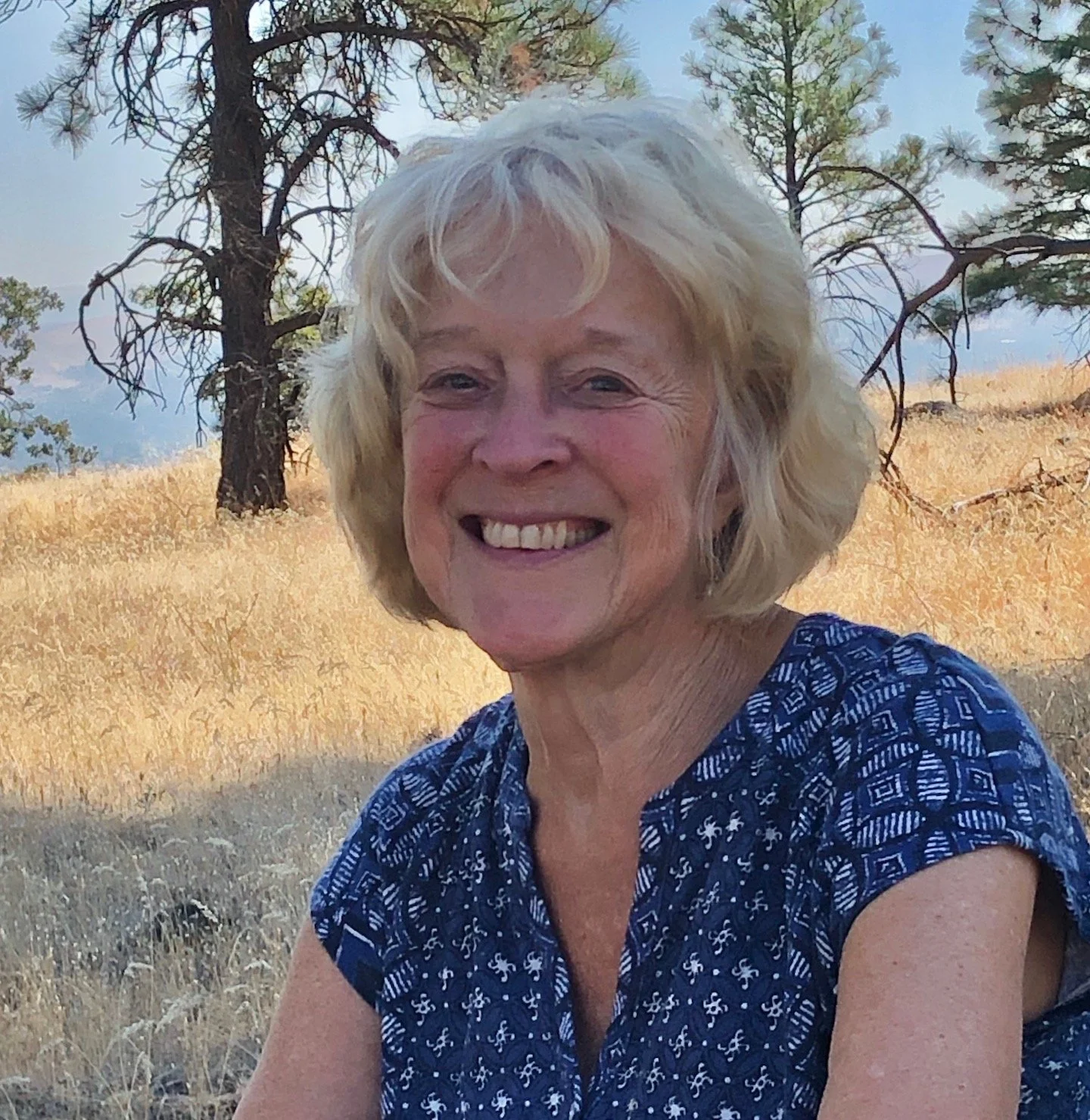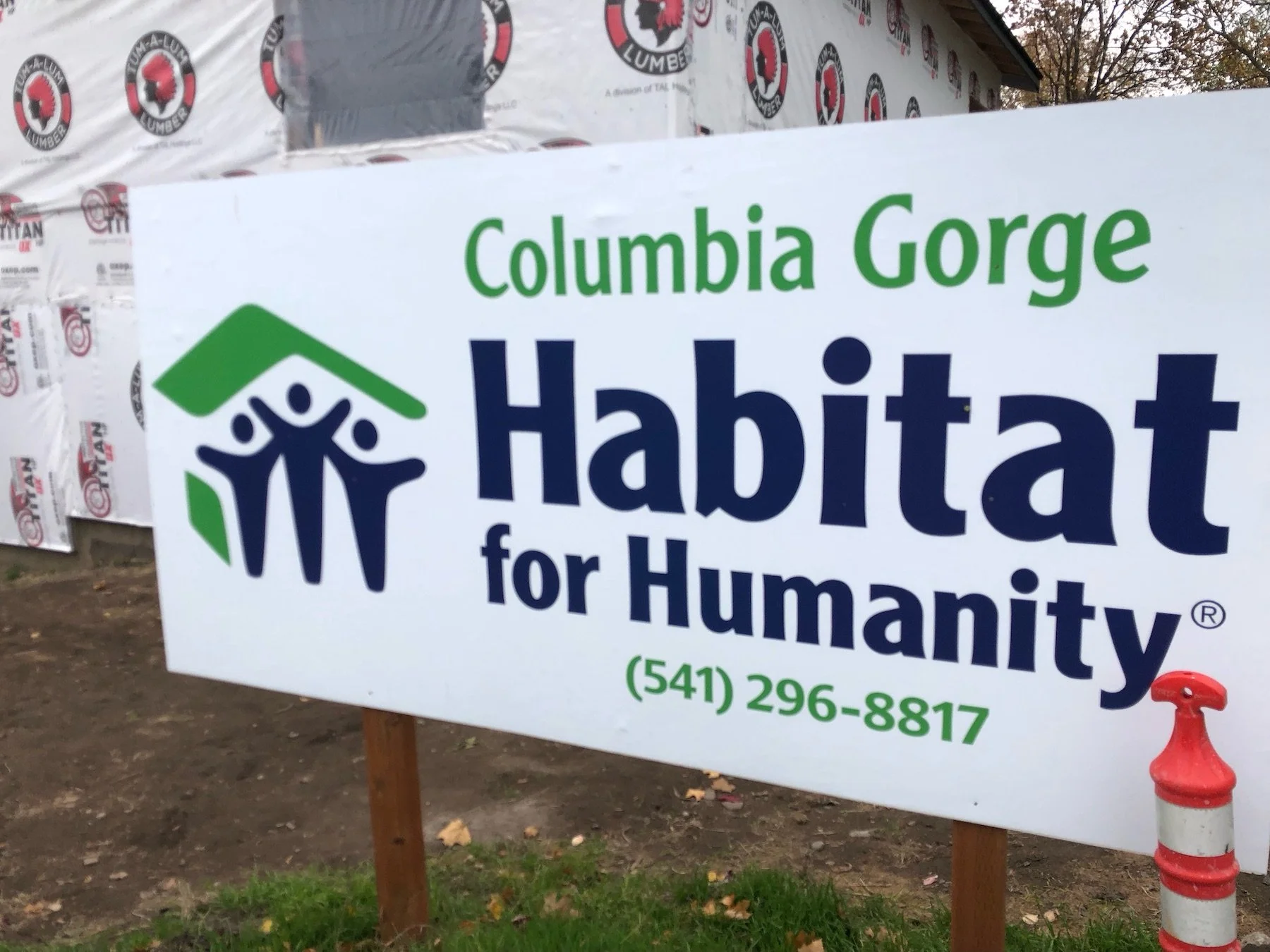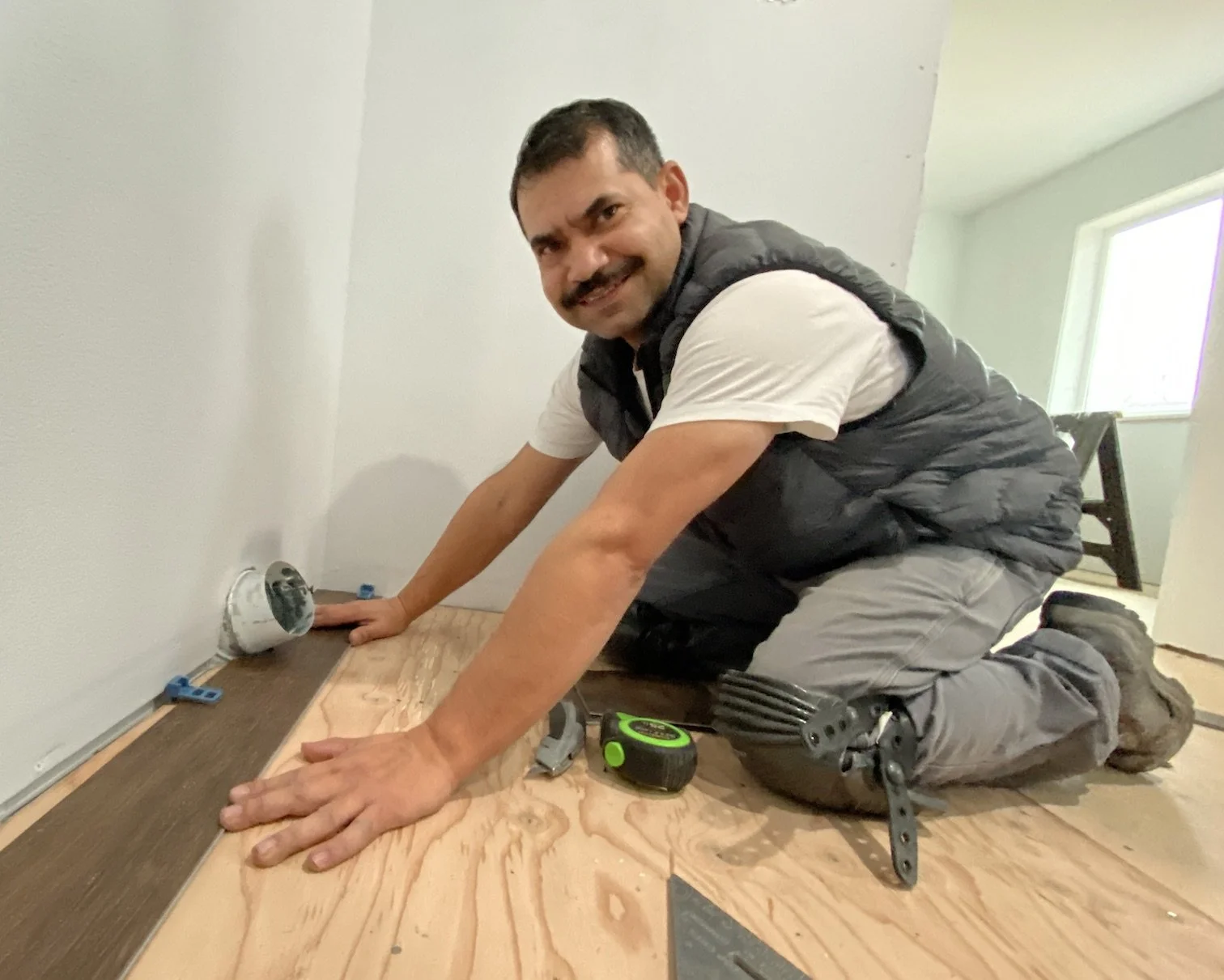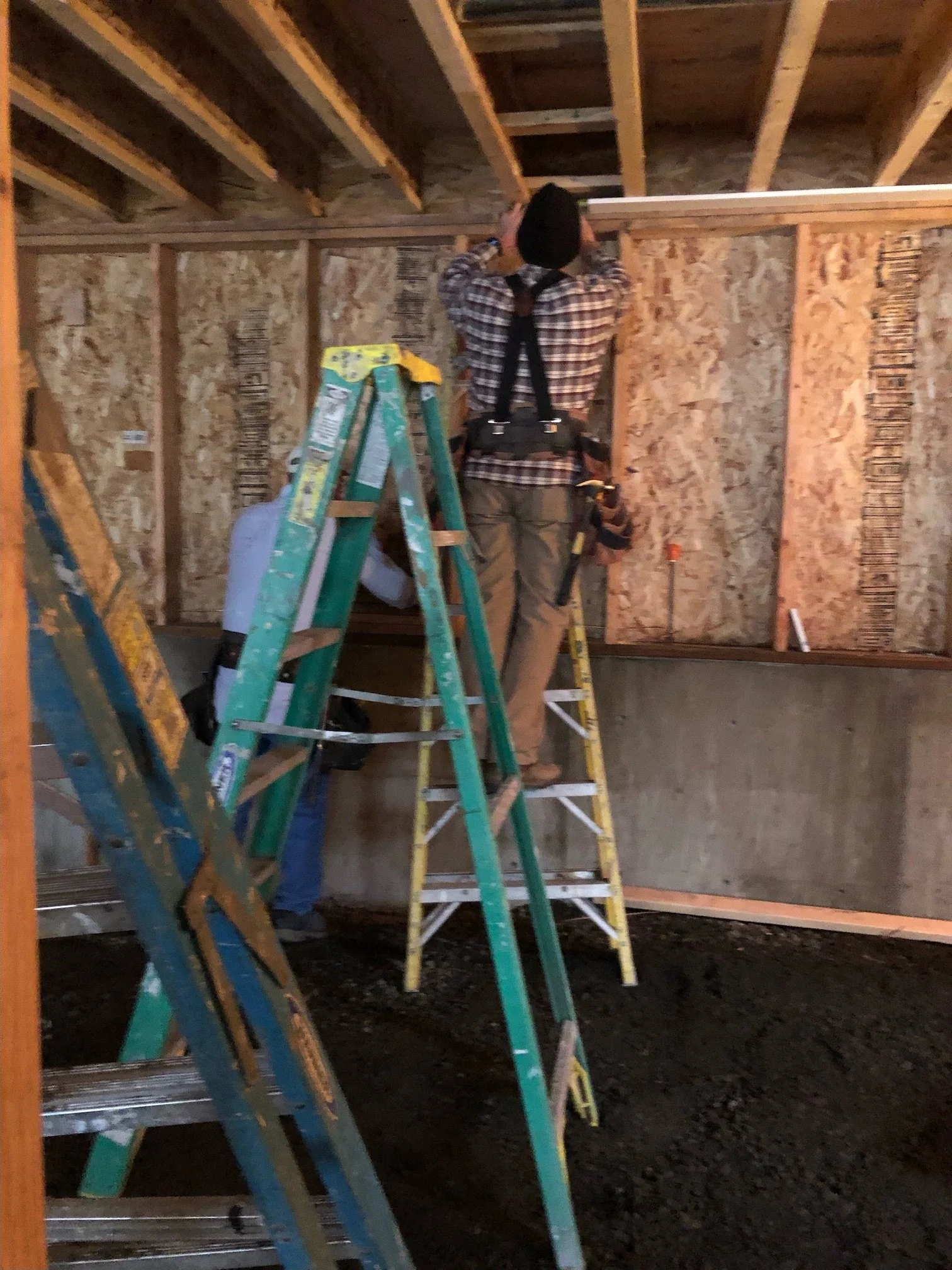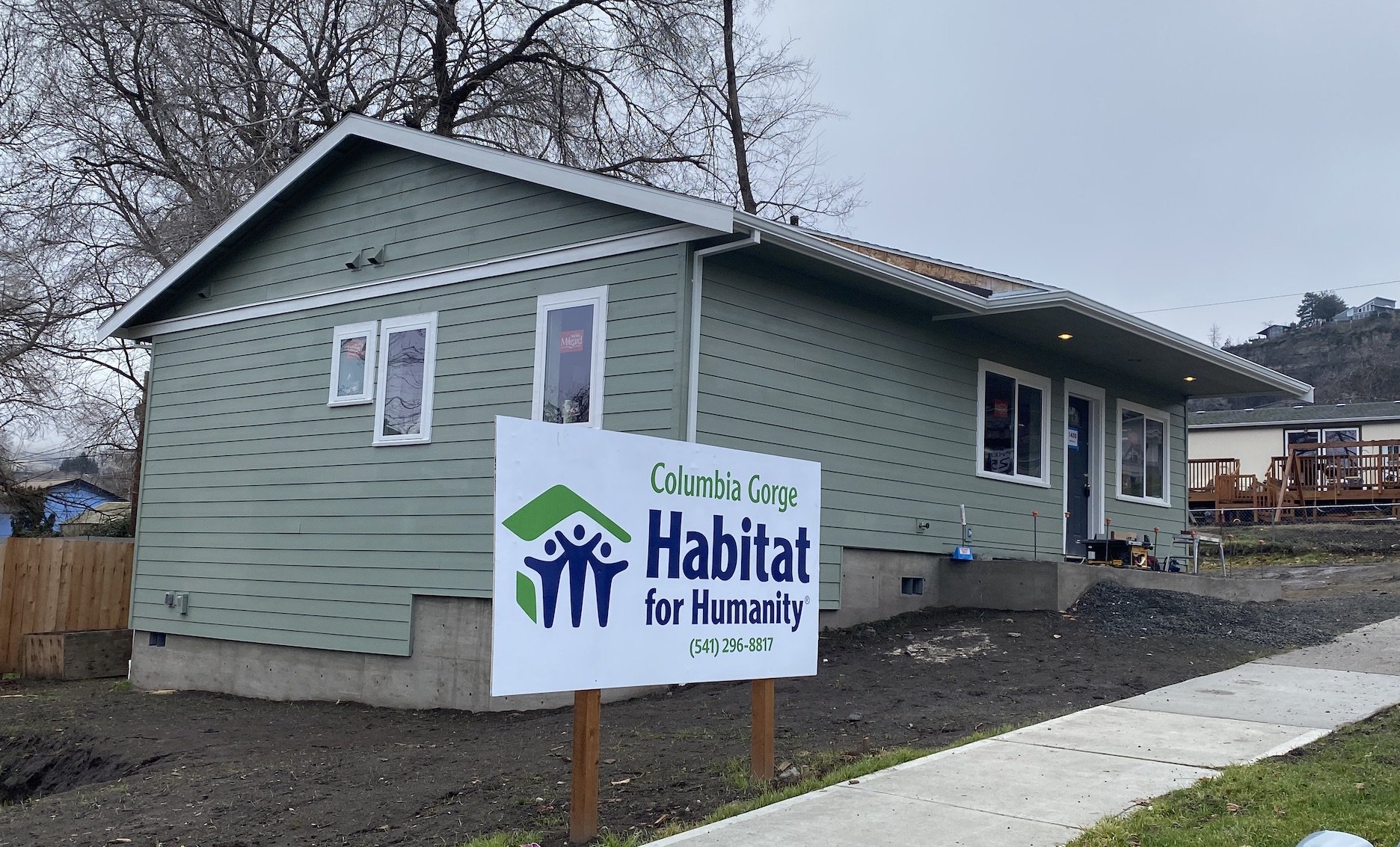Our Hidden Heroes: Episode One; Meet Volunteer Phil Johnson
Phil Johnson is putting in his volunteer hours at the corner of Kelly and 13th Street in The Dalles at the latest Columbia Gorge Habitat for Humanity build. Johnson said volunteering goes both ways as his time and effort provide him with a sense of fulfillment while creating a great platform to meet interesting people.
Editor’s Note - This is the first in a multi-part series looking at volunteering and in particular those who help build homes with Columbia Gorge Habitat for Humanity, which has been building the American Dream for locals for more than 20 years. The program helps locals achieve the purchase of a new home, but land ownership goes much deeper, creating generational wealth and pathways to better education and or skill training for the upcoming generation.
By Nancy Turner
Nancy Turner
I recently watched a silent video of people riding on a city bus.
It was clear from gestures and facial expressions what was going on. An elderly man sat on a bench seat along the inside of the bus, surrounded by other riders, all wearing coats, scarves and hats. He wore tennis shoes, sweatpants, and a white sleeveless undershirt.
The elderly man shivered from the cold.
From across the aisle, a man who looked like a college student, dressed in jeans and a hoodie under his jacket, walked over to the shivering man, took off his lined yellow raincoat, and wrapped it around the old man’s shoulders.
Seeing this, another man who had been standing near the door, approached, opened his backpack, pulled out a sandwich and a bottle of water, and gave it to the man.
A young woman in a tailored blue coat and red scarf was sitting next to the shivering man. She clutched a red leather purse and occasionally glanced at what was happening. Mostly she stared off into space. Out of the corner of her eye, she saw the old man start to unwrap the sandwich.
She shook her head, as if to say, “no, no.” A hint of a smile passed her lips as she opened her purse and took out a hand wipe. She could have just handed it to him, so he could clean his hands himself. Instead, she tenderly washed his hands as if he were her child. The old man smiled broadly and nodded his head over and over, in a gleeful gesture of appreciation.
Watching this scene, I was impressed by how the first gesture of donating a coat spurred another man to hand over his lunch. This moved the stoic woman to act kindly as well. Being thoughtful is contagious. Humans in general, have a strong desire to fit in, to belong. We have a tendency to do what others around us are doing, whether it’s an act of aggression or kindness.
We join in.
Of course, there are exceptions, like when one takes a stand against an injustice that the majority of people approve of. But in general, we are most comfortable doing what those around us are doing. I want to capitalize on this tendency to be influenced by others. When I read about someone doing good in our community, I get inspired.
I wonder, “What can I do?”
Folk tales and stories are like an owner’s manual on how to be a good person. They provide guidance without specifically telling you what to do. This is a major reason we tell stories to children. Stories for adults have different themes than ones for childhood. Folk tales for mid-life and beyond, from around the world, have similar themes.
One theme is that it is our task at this stage of life to give whatever wisdom we’ve gained over the years, back to our community. If one sits back and becomes self-absorbed, one is less content, suffers poorer health, and dies earlier. Elders who are engaged in their community are healthier, live longer, and are happier. Out of enlightened self-interest, it behooves us to do what we can for others. We live more fulfilling lives.
It is astounding to me how many people donate their time and skills.
For example, a group of men from Columbia Gorge Habitat for Humanity are building houses on Kelly Street in The Dalles. Others put in hours at the ReStore, Habitat’s thrift store, and major fundraiser.
Friends of mine work with the SMART program, reading to youngsters in schools. Another friend donates many hours of brain power helping people file their taxes. Another volunteers with a group working at beautifying our town with trees. Some maintain hiking trails and dig up invasive plant species.
Meals-on-Wheels folks deliver food to housebound elders. Volunteers at the Salvation Army serve food on Thanksgiving and Christmas. At the Discovery Center, raptors are cared for by a volunteer. Volunteers staff the gift shop at the hospital. They might seem invisible, but they are everywhere.
They are all quietly going about making other people’s lives better.
What if I put a spotlight on these unsung heroes? Knowing what they are doing will certainly help us feel more gratitude toward them. Might this also encourage us to lend a hand as well?
Being a volunteer is more than a random act of kindness, like paying for someone’s coffee or carrying a load of groceries. There’s a social contract involved. One takes on a responsibility to show up and an agreement to spend time and focused attention.
Sending a check to your favorite charity is a good thing to do, of course. But generously sharing of yourself, your skills, and your experience, in person, is a great way to feel good about your place in the world. It’s definitely an antidote to depression. As a treatment for the blues, doctors should prescribe volunteerism, maybe an hour a day, three days a week.
It’s free, with no negative side effects. We need to remove our masks of indifference and get busy!
If you’ve driven in The Dalles along Kelly Street, just up the hill from the Michoacana Store, you may have noticed a new house where a vacant lot used to be. Habitat for Humanity acquired the lot, subdivided it, and built a house. It’s now occupied. The second house was started in September; most likely it will be finished next May.
In January of 2022 - Rey Mendoza is all smiles as he fits a piece of vinyl flooring around a dryer vent connection in his new home at 800 E. 13th Street in The Dalles. He and his family of four have now moved into the home. And volunteers are now working on the next home, right next door.
The crew usually start working about 8 am and end by 2 pm, or later. Safety is a primary concern. During COVID, all workers were vaccinated and wore masks. They wear protective glasses and hardhats. Phil Johnson, one of the volunteers, does regular safety checks on hats and ladders. Another fellow, a retired construction worker, brings a truckload of tools. Rather than take a half hour off for lunch, they break for donuts and fruit around 10:30 am, then keep working. Sometimes Phil needs an extra boost of energy from his bread and peanut butter.
Phil left the corporate world twenty-two years ago. For a while, he worked as a handyman, but these days he mostly builds houses for Habitat for Humanity. Each summer he volunteers at the Smithsonian Folklife Festival on the mall of Washington, DC. His wife, Julia, followed a similar path. She left engineering to become a teacher and lends a hand at the Mt. Adams Buddhist Abbey. They live in White Salmon.
Phil’s goal every day is to find a way to make someone smile. This is his life philosophy. He gets pleasure from building houses because it’s his way of giving back to his community and helping others. He attributes this attitude to what he learned from his parents. They were both school teachers and valued fellowship with people who cared about others.
Work at the new Habitat house at the corner of 13th St. and Kelly Ave, in TD
I was recently walking my dog, Pippin, by the house on Kelly Street. The friendly workers gave us a tour. There were about five guys there that day. Phil said they wished more women would join their crew. In Portland, 40-50% of the workers with Habitat are women, but that’s not the case in The Dalles. He assured me that if someone wants to volunteer, they are happy to teach them what to do. No prior experience is required. In fact, the new homeowner is required to put in sweat equity while their house is being built. They could have never swung a hammer before, but they learn. They are also taught general house maintenance.
Have you ever wondered how these houses get paid for? Habitat searches for land at reasonable prices. Someone in their crew draws the blueprints. This saves the expense of hiring an architect. Invoices for materials are submitted to Chad Krause, Director of Columbia Gorge Habitat. The City of The Dalles and Wasco County Planning help with ideas about how to situate a house on a particular site and facilitate the permitting process.
Items that you and I donate to the ReStore are sold to raise money to pay for materials and tasks the volunteers aren’t allowed to do; they have to hire licensed electricians and plumbers.
For the house on Kelly, volunteers raised the roof, but it was the manufacturer, GAF, that donated shingles for the roof. To support the construction of affordable housing, Brown Roofing Company donated their time installing them. They’ve been a family-run business since 1953. (541-296-6593) These forces all come together to put a roof over a family’s head.
Phil said volunteering is not a one-way street.
Volunteering is not all about giving, he said. It’s also a wonderful opportunity to receive.
He gets a lot of good feelings from people who stop and inquire about the project. He says it’s particularly fulfilling to work with really interesting people. Each person is there because they want to be helpful. They like doing something meaningful with their lives. There’s no question about it. Being a volunteer is a significant opportunity to give and receive.
Support Local News
Available to everyone. Funded by readers.
The Columbia Gorge Habitat ReStore is a nonprofit. It accepts donations and sells new and gently used furniture, home goods, building materials and home improvement items. Many of the people working in the store are volunteers. You can make donations or purchases at ReStore, 1001 W 6th St., The Dalles. It is open Tues-Sat 10 a.m. - 3 p.m.

